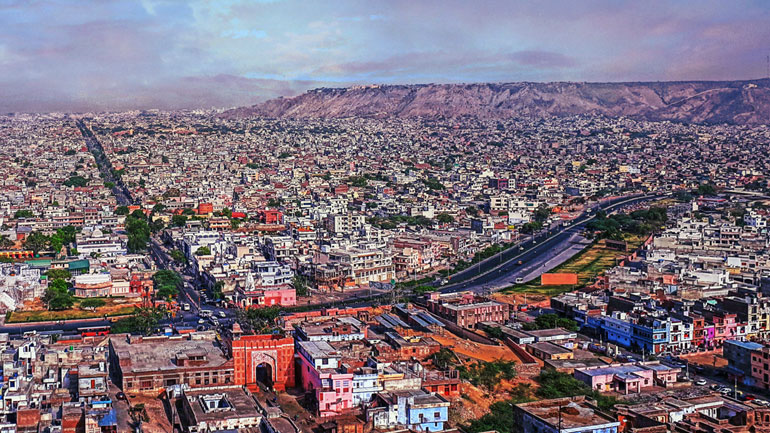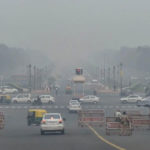On the 14th of October, 2019, the CSR team along with Mr. Szentmarjay and Ms Ritika Bhatia embarked on an evaluation trip of the HSS project – Water Conservation and Climate Change Training Program in Jaipur & Abu Road, Rajasthan, 2013-2018. It had barely been a week since I joined the Centre for Social Research as an intern, when I was first introduced to the HSS project in rural Rajasthan. I had read about the project in reports and learnt about its implementation strategies. When I was asked to accompany the CSR team for the evaluation of the project, I was more than excited. After an early morning flight to Jaipur and an informal conversation during brunch, we made our way to the first location – Kumhariyavaas.
At the Kumhariyavaas Panchayat Headquarters, we were welcomed with warmth by about 15 women working with the project, one of whom was Uma Sharma – the Sarpanch of Kumhariyavaas. Immediately, we saw Uma ji take charge of the room, settling everyone to let the interviews begin. Once a round of introductions was over, the interview began. The women were asked question about why they felt that water conservation was important and what they did to conserve water. They responded by telling us about the rainwater harvesting techniques they had implemented, and how the trainings had informed them about the importance of conserving water.
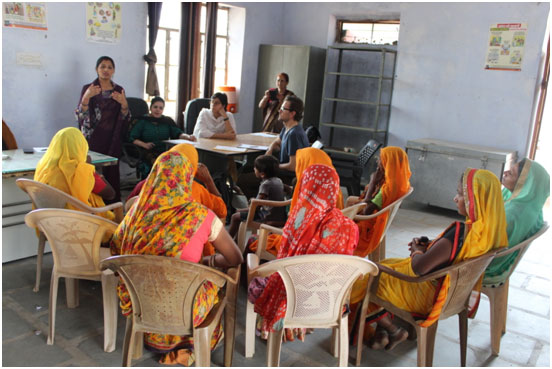

In a one-to-one conversation with Uma ji, we were able to gauge into the kind of societal pressures that a woman has to deal with entering into a traditionally masculine field. She told us about how stressful it is for women as they have to play a dual role now – that of a caretaker at home and a worker outside of home. Negligence of the woman’s household duties is not taken lightly by the family. However, Uma ji felt that the trainings have helped women to become more confident and provide for a better future for the coming generations. After the conversations ended, we made our way to the sites that had been constructed under her guidance. She proudly explained to us their uses and the need for such infrastructure.
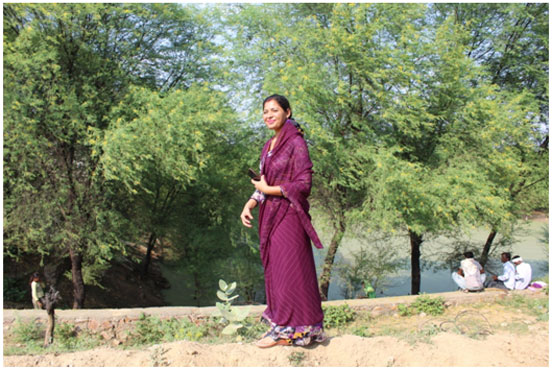

At the next location – Phagi – we met Asha ji, a 64 year old ex-Sarpanch who sat confidently beside the current Sarpanch. Throughout our interaction with her, she shared her experiences of working with conservation of water fluoride. She has conducted eight trainings, in which she spoke about the health hazards caused by water with high and the importance of rainwater harvesting. She did so through street plays, to captivate the interest of the community members. We also learnt about the plantation work that she had initiated, and with the community’s support, it is now flourishing. The final location for the day was Renwal, where we visited a rainwater harvesting site, which provided water for the tree plantations around the site. What was interesting to know about this was that this site was attached to a temple. So, the community members were mobilized in the name of religion, making water a symbol of religion. Thus, solidarity was achieved to build the site.
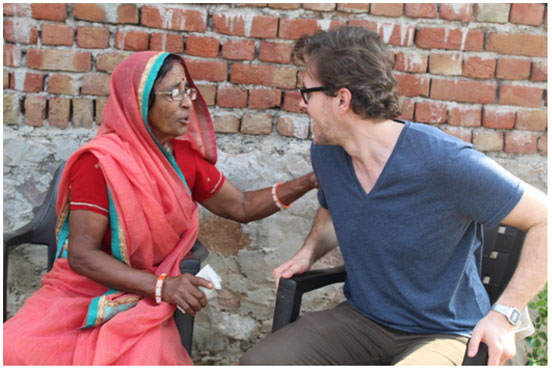

We began our second day in Jaipur by getting an early headstart to the field, accompanied by Kamla Sharma, our local resource person. On the way to Bajdoli, we met Maneesha Tanwar, the Sarpanch, who took us straight to a couple of water conservation sites which she had constructed. Both these sites were pond, around which Maneesha ji had initiated tree plantations. These ponds provided water for the surrounding villages, and also for the served to be source of water for the cattle. After taking a look at the sites, we went to the Anganwadi centre, where women working with the project had already collected. Women of all ages shared their experiences about water conservation and why they thought it was important.
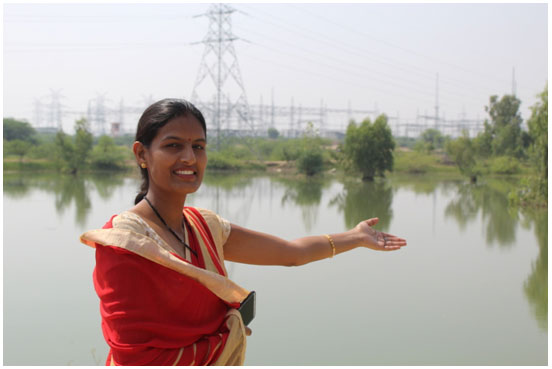

The final meeting of the Jaipur visit took place in the Headquarters of Shivdaspura, where we met Mehraz Khan, the Wardpanch, along with other women involved with the project. Mehraz Khan told us about the social stigma women face when they leave the house to work outside. We were soon joined by the Sarpanch of Shivdaspura. We learnt about the problems she faced when she was first elected as the sarpanch – she was faced threats to her life. However, they said that women have been overcoming these obstacles and have been coming out to work towards water conservation. The area has worked extensively towards rainwater conservation, having installed mechanisms in many households.
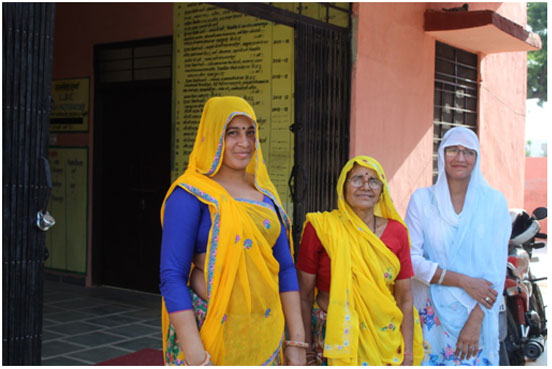

The visit to Jaipur culminated in a conversation with Mr. Jagveer Singh, the technical expert in Jaipur, who gave us an insight into the trainings conducted for the Elected Women Representatives. All the conversations which took place over the course of two days in Jaipur were a huge learning, especially since I was able to witness all that I had read about the project in the reports come alive. Learning from the experiences of the people who worked on the ground increased the horizons of my knowledge on the project.
Note: This blog is the first of a two-part blog, covering the CSR team’s visit to Jaipur and Abu Road. Stay tuned for the next part, out soon!



